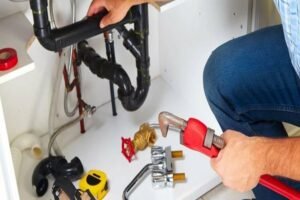Efficient Plumbing Solutions for Your Home and Business in Redlands
Plumbing might not be the first thing that comes to mind when you think of your home or business, but it plays an indispensable role in maintaining comfort, hygiene, and operational efficiency. In Redlands area, with its vibrant community and growing businesses, demands plumbing systems that can keep up with the pace of life. Whether you’re a homeowner or a business owner, embracing efficient plumbing solutions can make a substantial difference in your comfort, expenses, and environmental footprint. Please click reference this for your local trusted Services in Redlands.
Before diving into the world of plumbing innovations, it’s important to assess the existing plumbing setup. Are the fixtures outdated? Are there hidden leaks contributing to water wastage? By addressing these questions, you can pinpoint areas that need improvement. Modernizing your plumbing system involves integrating contemporary fixtures and technologies that are designed to optimize water usage.
Consider replacing conventional faucets and showerheads with low-flow alternatives. These innovative fixtures maintain a steady water pressure while significantly reducing water consumption. Dual-flush toilets are another fantastic addition, offering the choice between a partial or full flush, conserving water with every use. Tankless water heaters, a marvel of engineering, provide hot water on demand without the need for a bulky storage tank. This not only saves space but also reduces energy consumption, leading to lower utility bills.
Benefits of upgrading: Not only do these upgrades promote water conservation, but they also contribute to energy savings. By minimizing water heating and wastage, you’re not only being environmentally conscious but also cutting down on maintenance costs in the long run.
Preventive Maintenance Strategies
Proactive maintenance can save you from plumbing disasters down the road. Regularly inspect pipelines and connections for any signs of wear, corrosion, or leaks. Establish a maintenance schedule that includes tasks such as cleaning drain traps and checking water pressure. Even seemingly minor issues like leaky faucets or dripping pipes can escalate into major problems if left unattended. Flowlink Plumbing have been offering that service in plumbing Redlands QLD and have locals trust.
Don’t underestimate the importance of professional plumbing check-ups. Skilled plumbers can detect hidden leaks using advanced tools and diagnose potential issues before they become full-blown emergencies. Regular drain cleaning can prevent clogs, ensuring your plumbing system runs smoothly.

Emergency Response Planning
Preparedness is key when it comes to plumbing emergencies. Familiarize yourself with the location of shut-off valves and switches for your water supply. In case of a sudden leak or burst pipe, knowing how to swiftly shut off the water can prevent extensive damage.
It’s also advisable to have a list of local emergency plumbers on hand. Plumbing issues can arise at any time, and having a reliable professional to call can make all the difference. While waiting for professional assistance, there are temporary solutions you can employ, such as pipe patching techniques to stem leaks and minimize water damage.
At Flowlink Plumbing isn’t just a convenience – it’s a smart investment for your property. By upgrading your plumbing system, practicing preventive maintenance, adopting sustainable approaches, and having a solid emergency plan, you’re ensuring the longevity, efficiency, and eco-friendliness of your plumbing infrastructure in Redlands. So go ahead, make a splash with efficient plumbing choices that benefit your property.
Choosing the Right Plumbing Professional In Redlands Today
While there are many DIY plumbing tutorials available online, it’s important to recognize the value of a skilled plumbing professional. When faced with complex plumbing tasks, intricate installations, or emergencies, the expertise of a licensed plumber becomes indispensable. Contact the trusted professionals at Flowlink Plumbing in Redlands. Whether it’s emergency repairs, kitchen, and bathroom plumbing, or comprehensive maintenance, their skilled team is ready to assist. Don’t let plumbing problems disrupt your daily life.
…